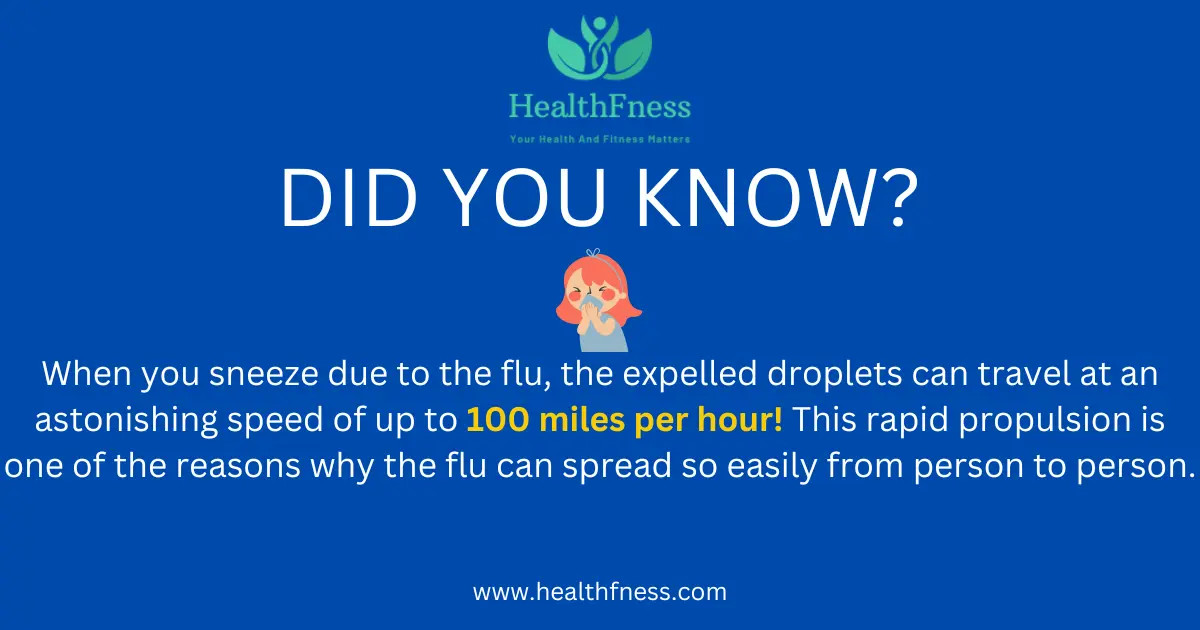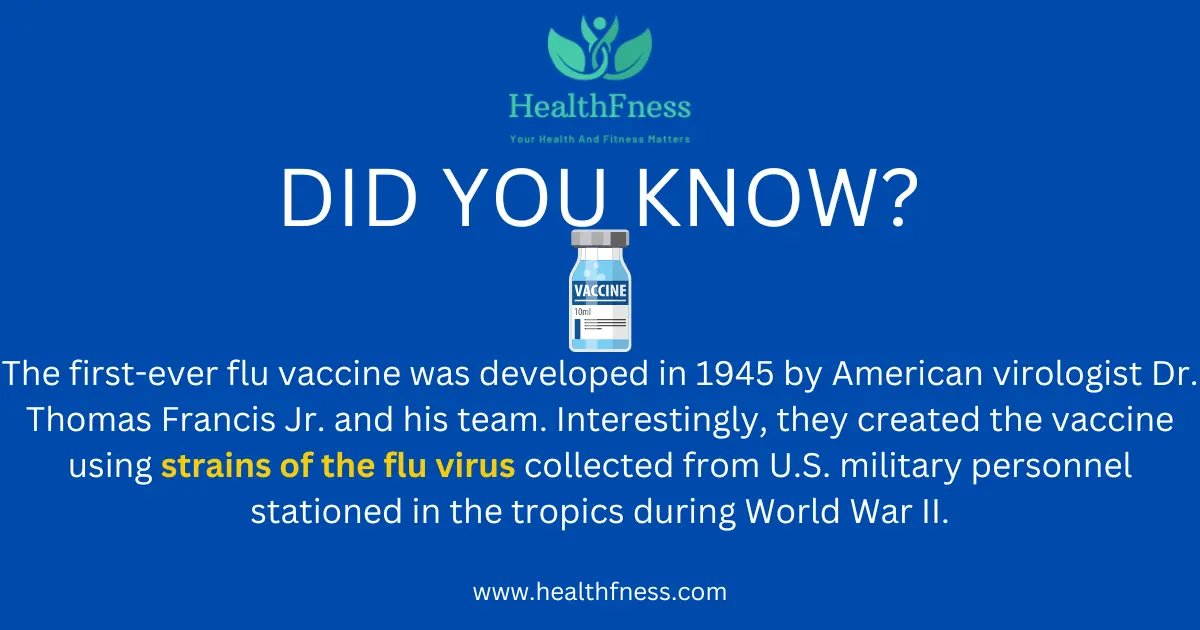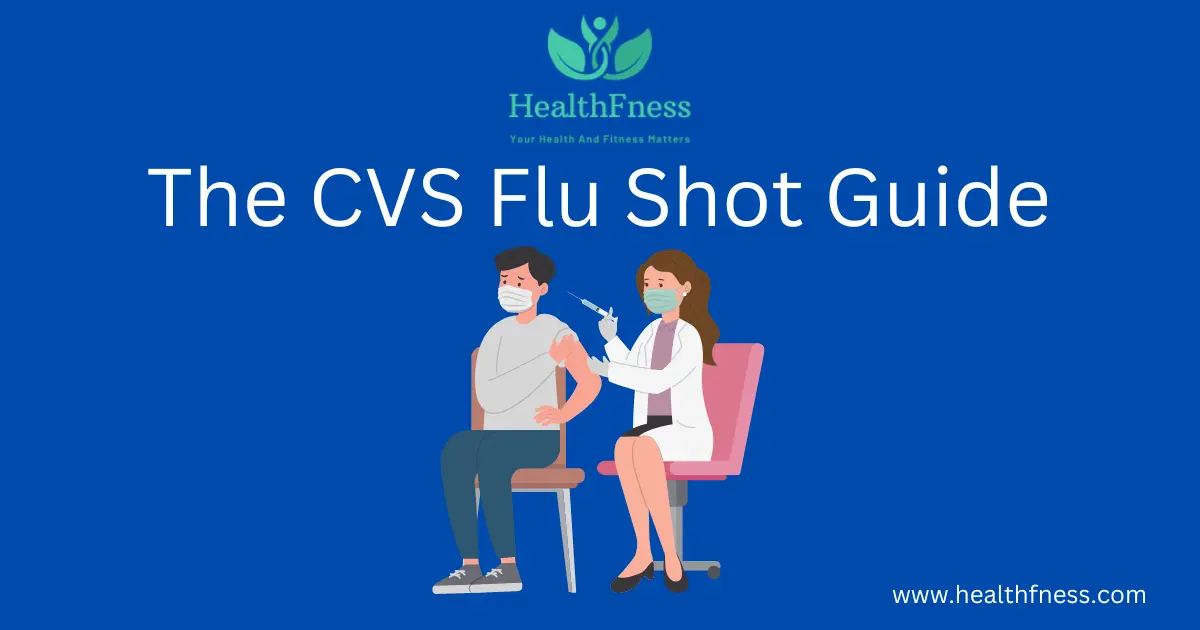The possibility of getting the flu and dealing with its unpleasant symptoms makes flu season for many people a difficult time. Getting a flu vaccination is one of the most reliable ways to ward off the flu for both oneself and others. In-depth information about CVS flu shots will be covered in this article, including what they are, how to obtain them, their advantages, and crucial details about their efficacy and safety.
What is a CVS Flu Shot?
An immunization given at CVS pharmacies to assist people to defend themselves against seasonal influenza viruses is known as a CVS flu shot. The flu shot contains inactivated influenza viruses, which cause the body to produce antibodies that will enable it to combat the virus in the event of future exposure. It is a tried-and-true approach that lowers the chance of contracting the flu.
Flu season is a battle, but with a vaccine in hand, victory is within reach.
Benefits of Getting a Flu Shot at CVS
There are many benefits to getting a flu vaccination at CVS. In the beginning, it offers a defense against the flu, lowering the risk of getting sick and having serious symptoms. Additionally, the flu vaccine aids in limiting the virus’s ability to infect more susceptible groups, such as the elderly and young children. Additionally, CVS makes it simple for customers to get flu shots at a variety of locations, making it simpler for people to put their health first.
How to Get a Flu Shot at CVS
The procedure for getting a flu vaccine at CVS is simple. Customers can request a flu vaccination by walking into any CVS pharmacy. The vaccination is administered by qualified healthcare professionals, who make sure it is done so precisely and safely. Since prior appointments are not always required, it is a practical choice for people with busy schedules.
Protect yourself, and protect others – a flu shot is a small act of kindness with a big impact.
Who Should Get a Flu Shot?
All people above the age of six months are advised to receive an annual flu shot by the Centres for Disease Control and Prevention (CDC). Everyone who wishes to lower their risk of contracting the flu should do this, including people with ongoing medical issues, expectant women, healthcare professionals, and everyone else.
You May Also Like To Read: Amazing Aleve D Sinus And Cold: Managing Cold and Flu Symptoms with Aleve D
Flu Shot Availability and Cost at CVS
During the flu season, which typically begins in the fall and lasts into the winter, CVS typically provides flu injections. Depending on elements including insurance coverage and the type of vaccination used, the price of the flu injection may change. The flu vaccination is, however, frequently covered by insurance policies at little or no expense to the insured person.

Flu Shot Effectiveness
Depending on how closely the flu vaccination matches the types that are currently circulating, its efficacy can change from year to year. Even though it might not offer complete protection, the flu vaccine can nevertheless lessen the intensity of symptoms and the chance of complications from the virus. It is a crucial instrument in reducing the flu’s negative effects on public health.
How Many Injections For Flu Vaccine?
Most people only need one injection to receive the flu vaccine. The elements required to boost the immune system and offer flu protection are all included in this single injection. People might, however, get a second dose of the flu vaccine in specific circumstances.
You May Also Like To Read: Advil Cold And Sinus: Say Goodbye to Cold and Sinus Symptoms
What Is The Best Injection Site For Flu Vaccines?
The upper arm is often the ideal area to administer the flu vaccine. The most typical and suggested location for delivering the flu vaccine is the deltoid muscle, which is found in the upper arm.

How Long Is A Flu Shot Good For?
An influenza vaccination usually protects against the virus for one flu season, which normally lasts from the autumn to the spring of the following year. The influenza vaccination induces the immune system to create antibodies that specifically target the strains of influenza virus that are included in the vaccine.
Are There 3 Types Of Flu Shots?
Yes, there are three main types of flu shots available:
Trivalent Inactivated Influenza Vaccine (IIV3)
The typical flu vaccine comprises two influenza A strains and one influenza B strain of inactivated (killed) influenza viruses. Three distinct flu virus strains are covered by the trivalent vaccine: two influenza A viruses (often H1N1 and H3N2 subtypes), one influenza B virus, and both influenza C viruses.
You May Also Like To Read: Is A Sinus Infection Contagious? The Answer May Surprise You
Quadrivalent Inactivated Influenza Vaccine (IIV4)
The quadrivalent flu shot contains inactivated influenza viruses, just like the trivalent shot does. Due to the inclusion of two influenza A strains and two influenza B strains, it provides broader protection. This vaccination offers defense against two Influenza A viruses and two influenza B viruses, totaling four distinct flu virus strains.
Live Attenuated Influenza Vaccine (LAIV)
The live attenuated influenza vaccine contains influenza viruses that have been weakened but are still active, in contrast to the inactivated vaccine. It is recommended for healthy, non-pregnant people between the ages of 2 and 49 and is delivered as a nasal spray. The LAIV offers defense against two Influenza A viruses and two influenza B viruses, as well as four other flu virus variants.
What Are The 4 Names Of The Flu Vaccine?
The names of the four types of flu vaccines are:
Fluzone
The flu vaccination Fluzone is sold under the brand names Fluzone Quadrivalent, Fluzone High-Dose, and Fluzone Intradermal. Sanofi Pasteur produces these vaccinations, which come in a variety of formulations to accommodate a range of age groups and medical problems.
Fluarix
Another name for the flu vaccine made by GlaxoSmithKline (GSK) is Fluarix. It is marketed as Fluarix Quadrivalent and provides defense against four distinct influenza virus types.
FluMist
FluMist is a nasal spray that delivers the live attenuated influenza vaccination (LAIV). It gives security against four flu virus subtypes and is produced by AstraZeneca.
Afluria
The flu vaccine Afluria is created by Seqirus, a division of CSL Limited. Both Afluria Quadrivalent and Afluria Preservative-Free Quadrivalent, which both offer defense against four flu virus types, are available.
What Months Are Flu Season?
Flu season often occurs in the winter and autumn, especially during those seasons. Flu activity in the US can peak between December and February but can also begin as early as October and go through May.
What Is The Latest Flu Vaccine?
For the 2022–2023 flu season, three additional flu shots are especially advised for persons 65 and older:
- High-dose quadrivalent inactivated influenza vaccination.
- Recombinant influenza vaccine quadrivalent.
- Flu vaccine with quadrivalent adjuvant.
FAQS
Can I get a flu shot if I have a cold?
It is normally safe to get a flu shot if you have a slight cold. The flu vaccine shouldn't be avoided if you have a minor cold with symptoms like a runny or stuffy nose, sneezing, or a moderate sore throat.
What day does flu peak?
The peak flu season can change from year to year, and it also depends on the area and the particular flu virus strains that are prevalent there at the time. The flu season normally peaks in the US between December and February.
Conclusion
Finally, taking a flu vaccination at CVS is an easy yet effective strategy to safeguard oneself and others from the virus. Numerous advantages of immunization include lowering the risk of infection and stopping the virus from spreading to at-risk groups. To guarantee the best protection, it’s critical to adhere to CDC recommendations and receive an annual vaccination. Individuals can actively promote public health and well-being throughout flu season by taking this preventative action.
Video Credits:

Dr. Mark Jenkins, MD - General Physician (California, USA)
Dr. Mark Jenkins is a board-certified general physician based in the United States, specializing in preventive medicine, nutrition, and lifestyle health. With years of clinical experience in primary care, he is dedicated to helping patients and readers alike make informed, science-based decisions about their well-being.
As a trusted medical reviewer and contributor to Healthfness.com, Dr. Jenkins ensures that all health content meets the highest standards of accuracy, safety, and evidence-based medicine. His expertise bridges modern medical science with practical, everyday wellness strategies, making complex topics approachable for all audiences.
Outside the clinic, Dr. Jenkins is passionate about living the healthy lifestyle he teaches. He enjoys hiking with his dog, experimenting with vegetarian cooking, and exploring the latest health research. He believes that small, consistent lifestyle changes lead to lasting health improvements, and he aims to inspire readers to take proactive steps toward a healthier, happier life.
Explore more of Dr. Jenkins’ evidence-based insights at Healthfness.com



